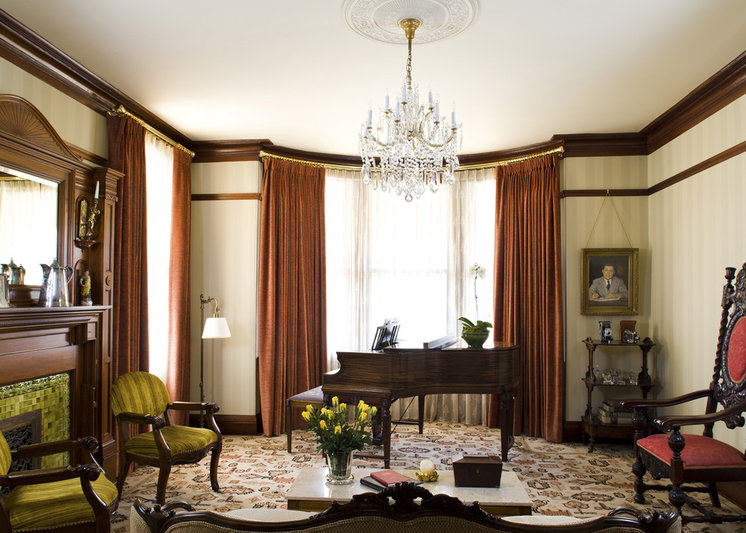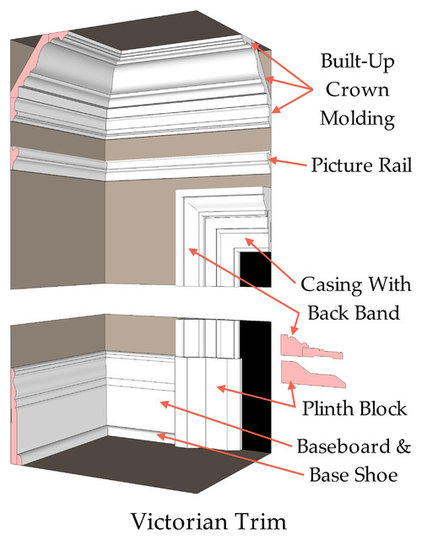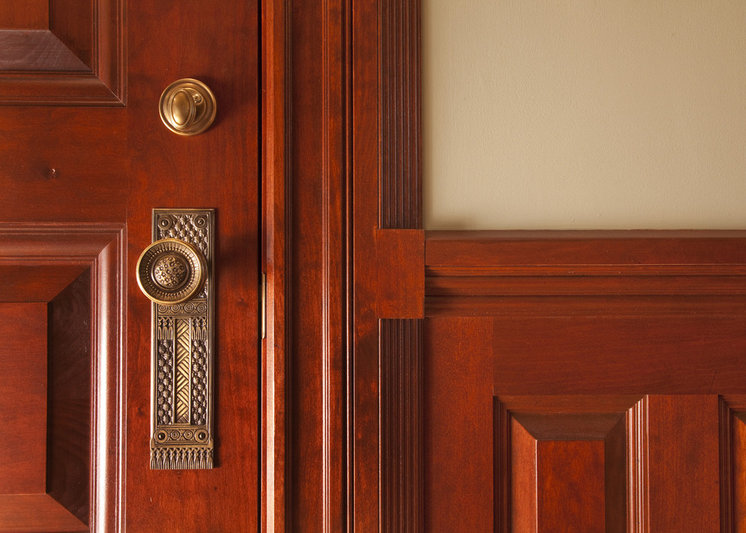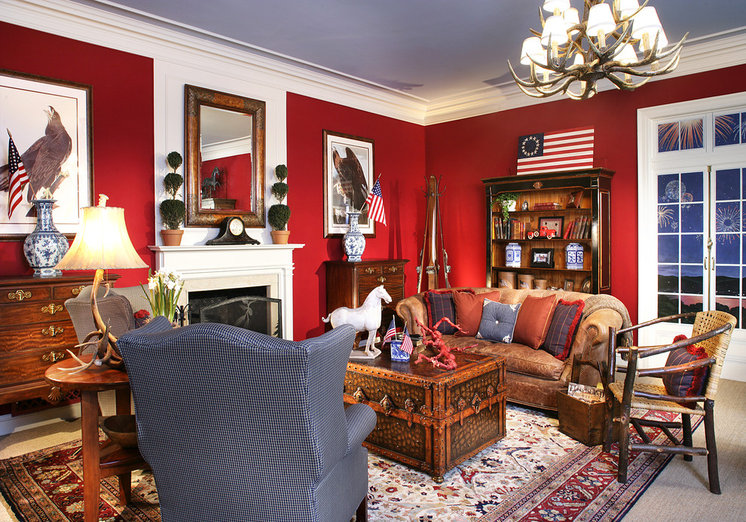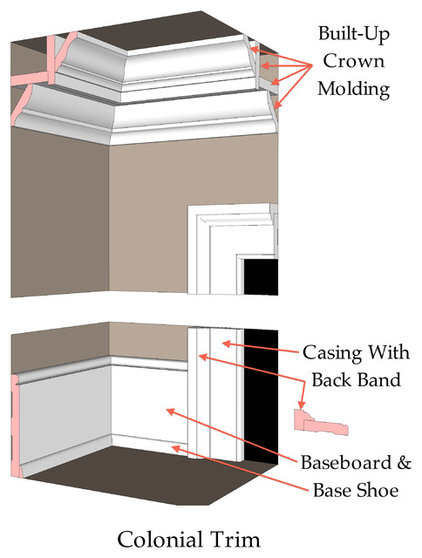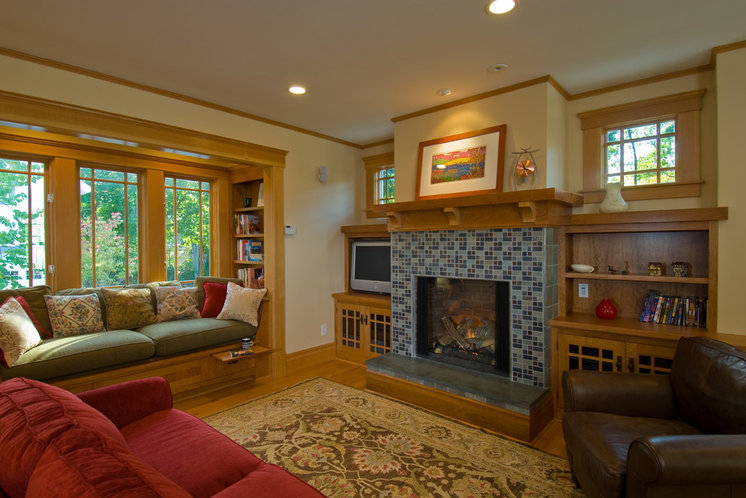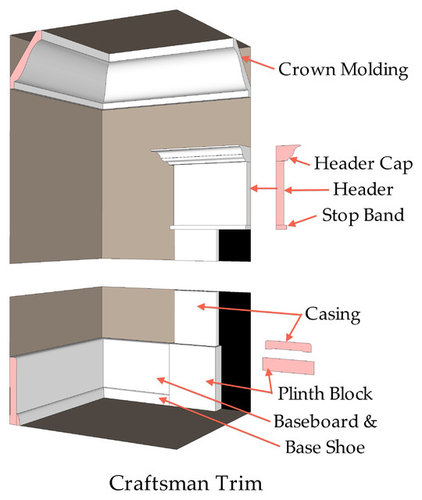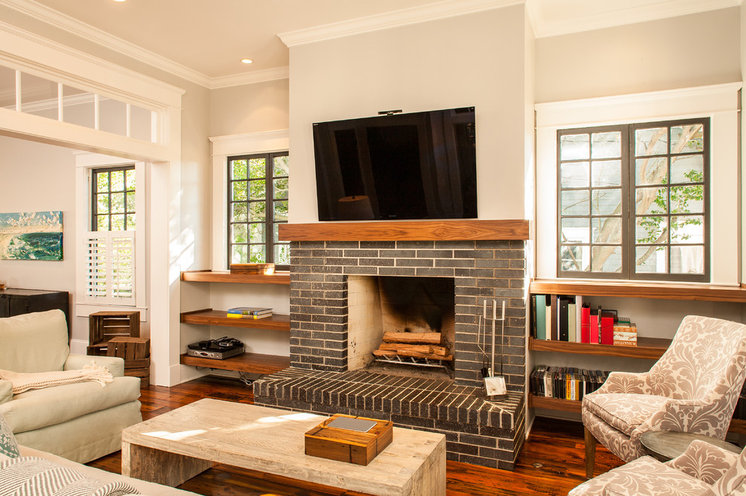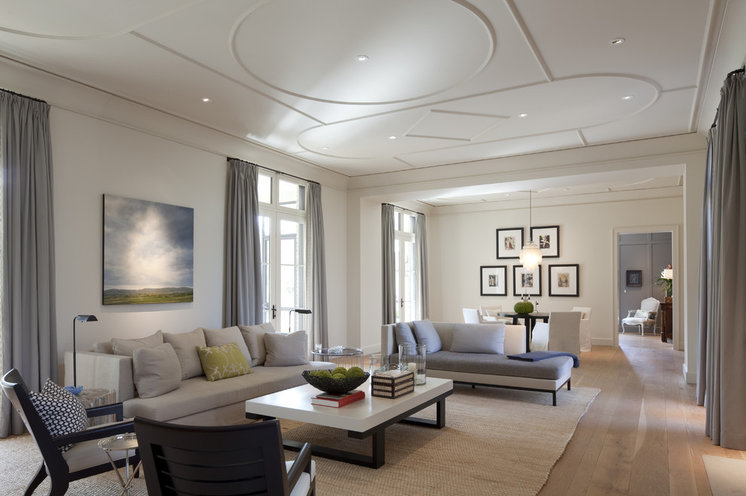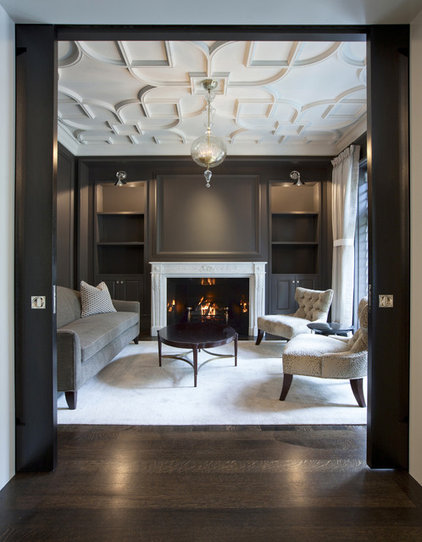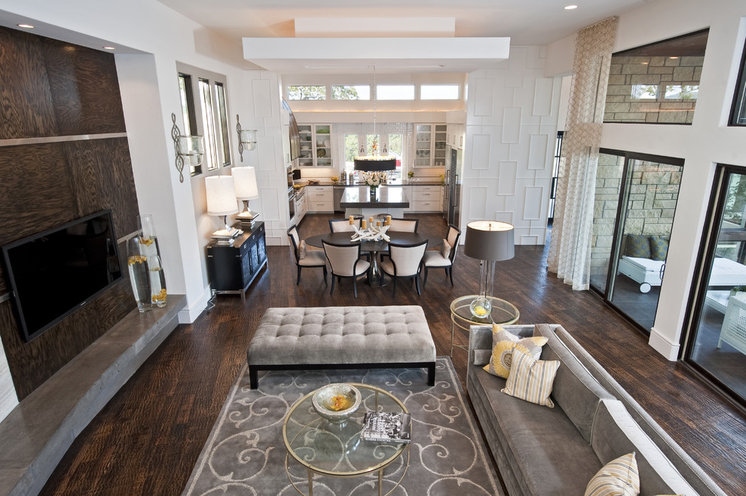Project: New interior trim.
Why: Whether you want to embellish or change the character of your space, trim will give your rooms more personality and a stronger identity.
Victorian
This Boston Victorian delights with beautiful stained wood trim. The profile of each molding leaves a specific impression — notice it at the meeting of the ceiling and the wall, for example.
The diagrams that follow illustrate how different trims are used to achieve the effects that can define different styles. Variations are as numerous as the number of carpenters and architects who interpret these trims, although certain molding profiles will always be associated with certain styles.
Shown here is a highly detailed casing with a beaded edge surrounded by a back band. The generous profile of the baseboard also has a shoe mold, which helps to cover the gap between the base and the wood floor. The plinth block acts as a termination point for the baseboard and the door casing.
You may want to consider high contrast for your trim, like in this traditional-style room. It will highlight the woodwork and help to emphasize the proportions of the room.
The casing also has a back band over a simpler beaded trim. The baseboard has a bead detail at the top and is finished off with a base shoe.
Craftsman houses are popular for their wonderful trim details. Ironically, the concept behind them originally was to modernize and simplify the traditional architectural features that preceded them.
Some designs have plinth blocks, as shown below, or the door trim extends straight and flush to the floor. Although there is a base shoe here, notice that the baseboard has no detail — just an eased edge.
This splendid transitional contemporary house pays homage to the history of moldings. Monochromatic walls host a simple baseboard and reach to a generous cove detail. Simple ceiling tracery dignifies this room as formal.
When to use trim: When your rooms do not already have trim, or if the existing trim does not coordinate with the true architecture of your house.
Who to hire: Lots of people are very handy with saws and woodworking, so you may be one of the lucky ones who can do this work yourself. There are scads of how-tos on the Internet, so finding help can be rather easy.
This is also a great job for your favorite handyperson, and the labor is likely affordable. For jobs with lots of detail, paneling and casework, you’ll want to find a carpenter or contractor who has lots of experience with this type of work. Understanding classical architecture and properly executing the installation is an art form unto itself.
Cost: This is a matter of linear footage. Synthetic trims or moldings can cost less than a dollar per linear foot. Or you might prefer milled hardwoods that can be stained, which can cost several hundred dollars for lengths of several feet.
If you were to trim a small bedroom with crown molding and a more substantial baseboard, you could probably do the project for less than $500. Large rooms with custom casework will creep into the thousands of dollars, depending on the wood species and detail.
Typical project length: The complexity of the project should be taken into consideration, of course. For small rooms, trim could probably be installed in a weekend. A handyperson might take a week to do a large room that has simpler details. If you have wainscoting or paneling and have a very detailed space, the project could take a contractor a few weeks to complete.
Permit: It’s unlikely that you’ll need permits for this type of project. It’s similar to painting, in that it is finish work. If you are making electrical or plumbing changes, then you may need a permit.
Best time to do this project: Any time of year, but it would be wise to avoid construction during holidays or any other time you might have guests or need the house neat and clean. Expect minor disruptions and dust.
First step: Study the architecture of your house and what types of trim are appropriate for its style. The wrong trim is not unlike white pants after Labor Day: It might look silly.
Author:



